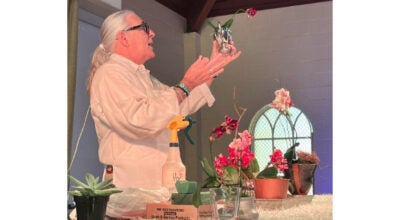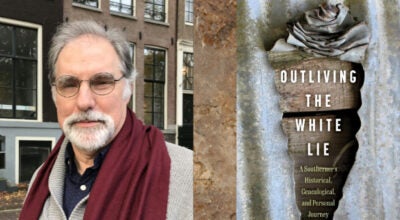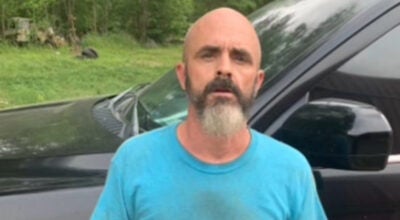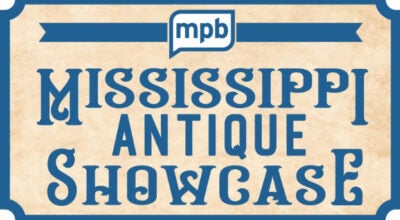Sunday Focus: Local doctors debunk myths about COVID-19
Published 7:48 pm Friday, July 31, 2020
|
Getting your Trinity Audio player ready...
|
NATCHEZ — With so much conflicting information floating around about the novel coronavirus, it can be difficult to discern what is truth and what isn’t.
This is understandable given that more and more research is still revealing new things about the disease on what seems like a week-to-week basis.
What people were told about the virus last month may or may not still be true today.
The Natchez Democrat reached out to a few local, frontline healthcare providers to address some of the most commonplace claims about COVID-19 to see what they had to say.
Claim: “I would know if I were sick”
Local doctors agreed that approximately 80% of COVID-19 patients are asymptomatic or have only mild cases.
Charles “Chuck” Borum MD experienced the virus himself in April.
His symptoms were never severe enough that he would’ve stayed home under normal circumstances. Had it not been for his concern about spreading the virus to other medical staff or patients, Borum said he could have easily continued working and did continue working to the extent possible while he was quarantined at home.
“One day I was making rounds at the hospital — I think it was a Monday — and I had a feeling like ‘Oh, shoot, I’ve got a cold coming.’ I just didn’t mention it to anyone and went on with my day feeling like that. I just thought I would go to bed early and take care of myself and maybe I would feel better the next day,” Borum said.
“On Tuesday, I had that same feeling. I wasn’t coughing, I didn’t have a fever but I felt bad. I thought this was something I normally wouldn’t pay much attention to.
Everyone catches a cold once or twice a year but in the middle of a coronavirus pandemic, I didn’t want to be going around spreading anything that I had so I went ahead and took a test. Turned out it was positive.”
Borum said he took hydroxychloroquine and azithromycin for five days when he was first diagnosed and had prescribed the same to many of his patients.
Borum, who is 64 years old, said the mild symptoms he experienced differed from other patients he had treated in some cases.
“The coronavirus is obviously deadly,” Borum said, taking into account the number of deaths that occur daily worldwide because of the disease and, as of Friday, 23 deaths in Adams County.
However, the precautions used to slow the spread of the disease are not meant to cause fear and people shouldn’t be afraid to go on about their daily lives, he said.
“It’s a virus that needs to be respected,” Borum said. “It needs to be understood that it’s very easy to catch and the vast majority of those who do catch it will get over it pretty easily.”
Claim: “Masks don’t work”
Kenneth Stubbs, MD, said masks are effective in preventing the spread of infection in situations where people are around others they don’t live with and come in contact with every day.
Cloth masks are most effective when everyone is wearing them and should not only be used by those at risk, he said.
“When you are indoors and around other people, everyone should be wearing a mask,” he said. “The mask that you wear protects me and the mask that I wear protects you. Studies have shown that in masked populations, the spread is reduced substantially.”
Lee England, MD, chairman of the Natchez COVID-19 Task Force, said masks create a barrier that is more effective if everyone in a person’s proximity is wearing one.
“The mask puts a barrier between your breath and the other person. If everyone is wearing them, it creates two barriers and that is more effective,” he said.
Borum also said although masks wouldn’t stop some people from becoming infected the masks do help slow down the spread of COVID-19 and help businesses stay open.
“There’s a lot of panic and fear about the virus as it is something we can’t control,” Borum said. “I’m in favor of continuing to do business. It’s been shown that with social distancing and if you wear a facemask the spread of infection can be significantly reduced. … Facemasks are a very strong protector to prevent the transmission of the virus … and it’s just in situations when you are close to other people. It’s a small thing to ask for everyone to put on a mask.”
Claim: “The virus won’t affect me”
While most who’ve contracted the virus have mild or no symptoms, there have been abnormal cases among young adults who’ve died or became severely sick with no other known health conditions.
England said many COVID-19 patients who don’t require oxygen and are told to self-isolate at home still become very sick. Others could carry COVID-19 and never know it, England said.
“I’ve treated people who’ve had no underlying health issues who went on a ventilator,” England said. “It’s almost like COVID-19 is someone with a sniper picking off people. The bullet might graze you, hit you or miss you altogether. … We’re having a real wave of cases and we want to do everything we can to control it so that we don’t overload our hospital. If the hospital gets in trouble, the only recourse is lockdown and we want to avoid that. … To avoid that, we need everyone’s help. It’s a war.”
Stubbs said, as with many other illnesses, the death rate for COVID-19 patients under 20 years of age is almost zero. However, there have still been a few people under 40 years of age who’ve died with no other known comorbidities to speak of, he said.
“People should not go out and try to get (the virus),” he said. “It a real virus. It’s not make-believe and it’s potentially serious. Life should go on and we’ve got to learn to live smartly with it.”
Claim: “Virus cases are overstated”
England said from a local healthcare perspective, the idea of overstated cases for money or political gain is completely false. All COVID-19 positive cases from the local hospitals or clinics are reported to the department of health, England said.
“As I see more positive cases, I see more activity at the hospital,” he said. “… The current infection rate is building. There are times when the hospital is burdened with coronavirus cases and they also have to deal with other illnesses. … Some doctors and nurses have been testing positive and at times there may be enough beds but not enough nurses to staff them. At some point, you hit the capacity of what the hospital can handle and we don’t want to let that happen.”
Stubbs said COVID-19 tests continue to be refined and there are now multiple types of tests available, the most common being a polymerase chain reaction (PCR) test and antibody test. A PCR test is used to directly detect antigens in a specimen collected by a swab that is inserted into the nasal cavity while an antibody test, which uses a blood sample, looks for COVID-19 immunities that may not be present early on, Stubbs said.
As with similar tests for other illnesses, false COVID-19 positives are rare and false negatives could be common, Stubbs said, adding he believes tests that receive faster results are less sensitive than those that are sent to a lab.
“They all can miss a case,” he said. “We hope that with more laboratory research we can have a faster and more accurate test.”
Stubbs and other local doctors said living in fear of the virus is also unhealthy.
“There are people who’ve been afraid they’ll catch it just by walking outside and wear a mask and gloves everywhere they go. … You don’t have to lock yourself inside with a mask on,” Stubbs said. “Go outside, exercise and get some fresh air.”






